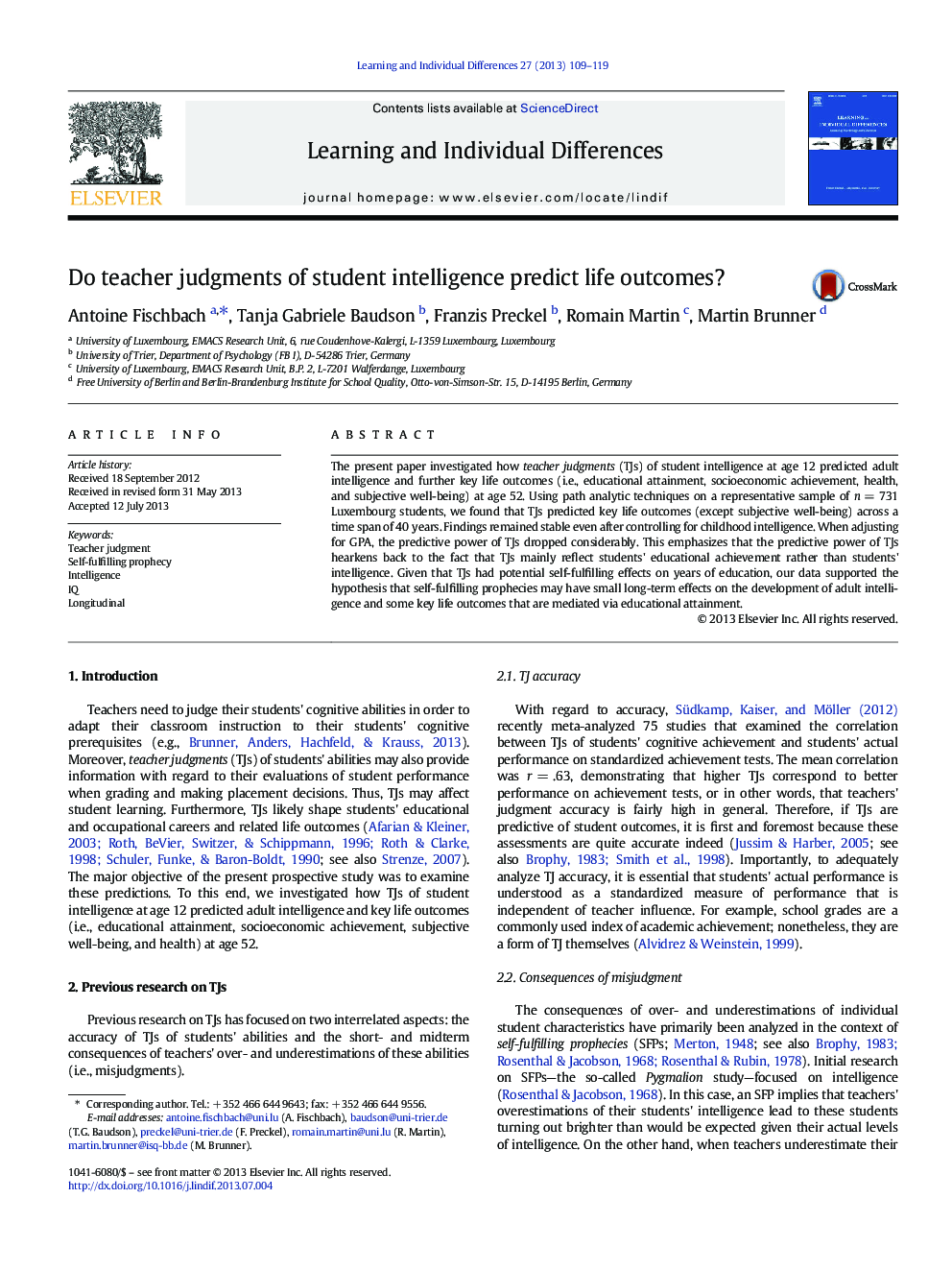| Article ID | Journal | Published Year | Pages | File Type |
|---|---|---|---|---|
| 364739 | Learning and Individual Differences | 2013 | 11 Pages |
•Teacher judgments of student intelligence predict key life outcomes over 40 years.•This predictive power remains even after controlling for childhood IQ.•Expectancy parameters (i.e., potential self-fulfilling prophecies) are small.•These potential effects are almost completely mediated by educational attainment.•Teacher judgments of student intelligence reflect GPA rather than IQ.
The present paper investigated how teacher judgments (TJs) of student intelligence at age 12 predicted adult intelligence and further key life outcomes (i.e., educational attainment, socioeconomic achievement, health, and subjective well-being) at age 52. Using path analytic techniques on a representative sample of n = 731 Luxembourg students, we found that TJs predicted key life outcomes (except subjective well-being) across a time span of 40 years. Findings remained stable even after controlling for childhood intelligence. When adjusting for GPA, the predictive power of TJs dropped considerably. This emphasizes that the predictive power of TJs hearkens back to the fact that TJs mainly reflect students' educational achievement rather than students' intelligence. Given that TJs had potential self-fulfilling effects on years of education, our data supported the hypothesis that self-fulfilling prophecies may have small long-term effects on the development of adult intelligence and some key life outcomes that are mediated via educational attainment.
